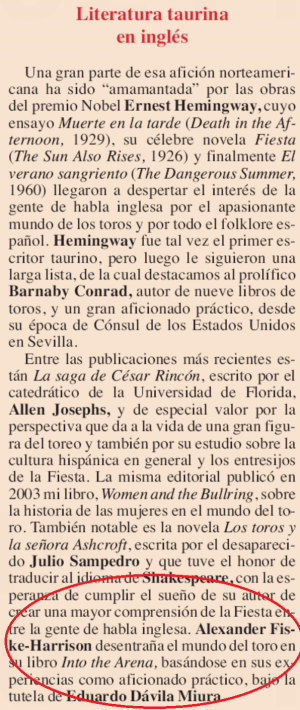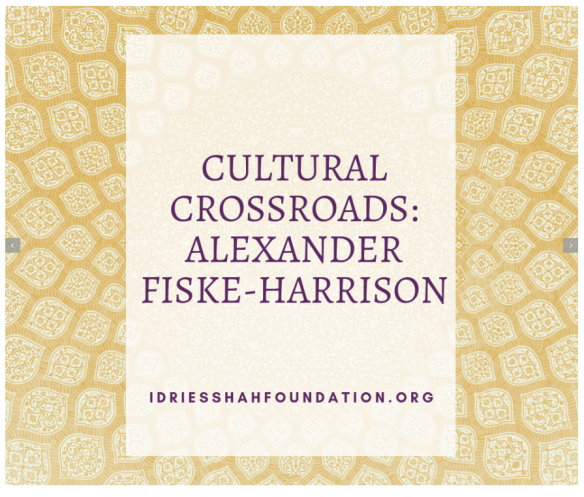
AFH with Juan José Padilla at his home in 2012 the day before his return to the ring. (Photo: Zed Nelson for GQ magazine)
I recently did an interview with fellow author – a specialist on Spanish and Moorish History and Art – Jason Webster for the Idries Shah Foundation (online here) on my interest in Sufism and my history in el mundo de los toros, ‘the world of the bulls’ in Spain.
Sufism is perhaps best described as a mystical form of Islam more closely related in its theology and philosophy to Buddhism than the other interpretations of Mohammed’s teachings, and as a result is the most internally persecuted variant of that religion both historically and during its current civil war.

Idries Shah was a noted author for many reasons but most of all introducing the ideas of Sufism to the West, as he did to me via his book The Caravan of Dreams.
Sufism’s link to the corrida de toros, a dance with the evident threat of – and executing with a sword the magnificent reality of – a Spanish fighting bull may seem distant, but they are there.
One link is purely circumstantial: I first read his writings immediately before I discovered Spain because, as I say in the interview, his was one of the few books I took with me when I went to live in the Sahara desert. When I returned to Europe, it was by ferry from Tangiers, so I landed in – and fell in love with – Spain. (Almost exactly twenty years ago to the day.)
I hope I brought out more than such minor personal and geographical links, though, in my rather digressive responses to Jason’s questions, ranging as they do from German philosophy to the Qur’an, Oscar Wilde to William Shakespeare.
Now I must return to work on the second edition of Into The Arena: The World Of The Spanish Bullfight, to take advantage of a resurgent publicity in its favour, such as in the most popular magazine in bullfighting, 6Toros6 (right), or in my long feature in the most recent issue of the Boisdale Life (see post above.)
Anyway, once again, the interview is here.
Alexander Fiske-Harrison

